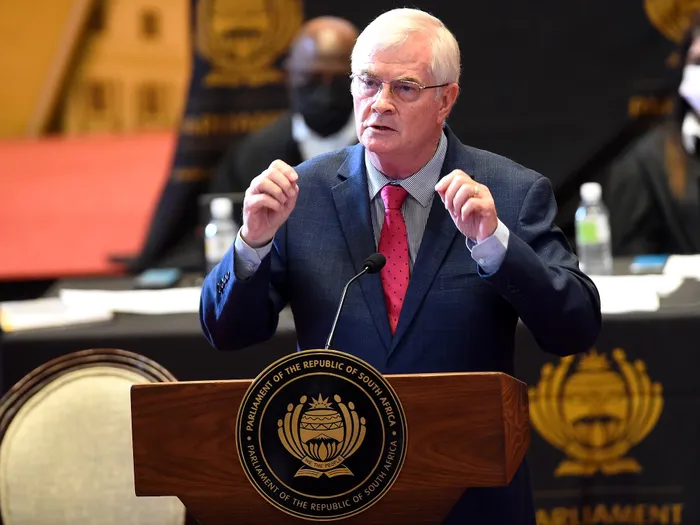Minister Groenewald to defend controversial proposal to reinstate corporal punishment"

Correctional Services Minister Pieter Groenewald stresses protecting vulnerable communities, especially women and children, by tightening parole approvals and urges honest dialogue on crime solutions, including revisiting corporal punishment despite its ban since 1996.
Image: Independent Media Archives
Minister of Correctional Services, Pieter Groenewald, is set to face scrutiny on Tuesday as he appears before the Portfolio Committee on Correctional Services to explain his controversial proposal to reinstate corporal punishment as a solution to the ongoing issue of overcrowding in South African prisons.
Groenewald made the remarks when delivering his budget vote in the National Assembly last week.
He was addressing the challenges faced by correctional services, including overcrowding, dilapidated infrastructure, a rising number of remand detainees, deteriorating facilities, staff shortages, the presence of crime syndicates and gangs within institutions, and emerging crime patterns.
He said corporal punishment will help "ease overcrowding in the country’s prisons".
“If you look at our criminal justice system, and specifically justice, we must start a debate to say, shouldn’t we bring back corporal punishment?” Groenewald said.
“A young person who steals 10 loaves of bread will sit in prison for perhaps three years waiting for sentencing. Go think (whether we should) bring it back... to address this issue,” Groenewald said in Afrikaans.
During a briefing by the Peace and Security Cluster Committee chairpersons on Monday, the chairperson of the Portfolio Committee on Correctional Services, Kgomotso Anthea Ramolobeng, said they will be expecting Groenewald to explain the rationale behind his remarks.
She said there were largely legal milestones which led to the abolition of corporal punishment and that the decision to abolish it stemmed from a violation of human rights.
“What is my view? I believe that it is in the best interest of whoever is in the executive or whoever is in government to abide by the Constitution of the country.
"Why has the minister taken a step to say, we should perhaps open debates on corporal punishment? We have yet to be taken into (his) confidence, as the portfolio committee.
“I can assure you that (today) we do have a Portfolio Committee on Correctional Services meeting from 9:30am, and we will probe the minister on why he made those assertions, and what informs them? So that he takes us through that,” Ramolobeng said.
“There are other measures that we can try to deal with, or come up with alternatively, that must deal with overcrowding, outside of corporal punishment, especially of those who have less (serious) crimes that leads to them having bail of R300.
“Put more focus on rehabilitative outlined programmes that talk to the current challenges we are facing.”
Get your news on the go, click here to join the Cape Argus News WhatsApp channel.
Cape Argus